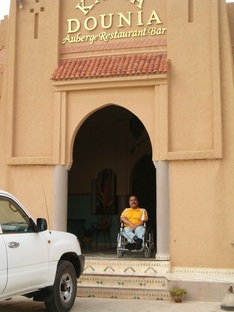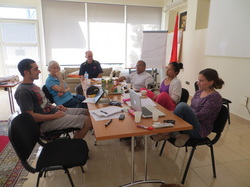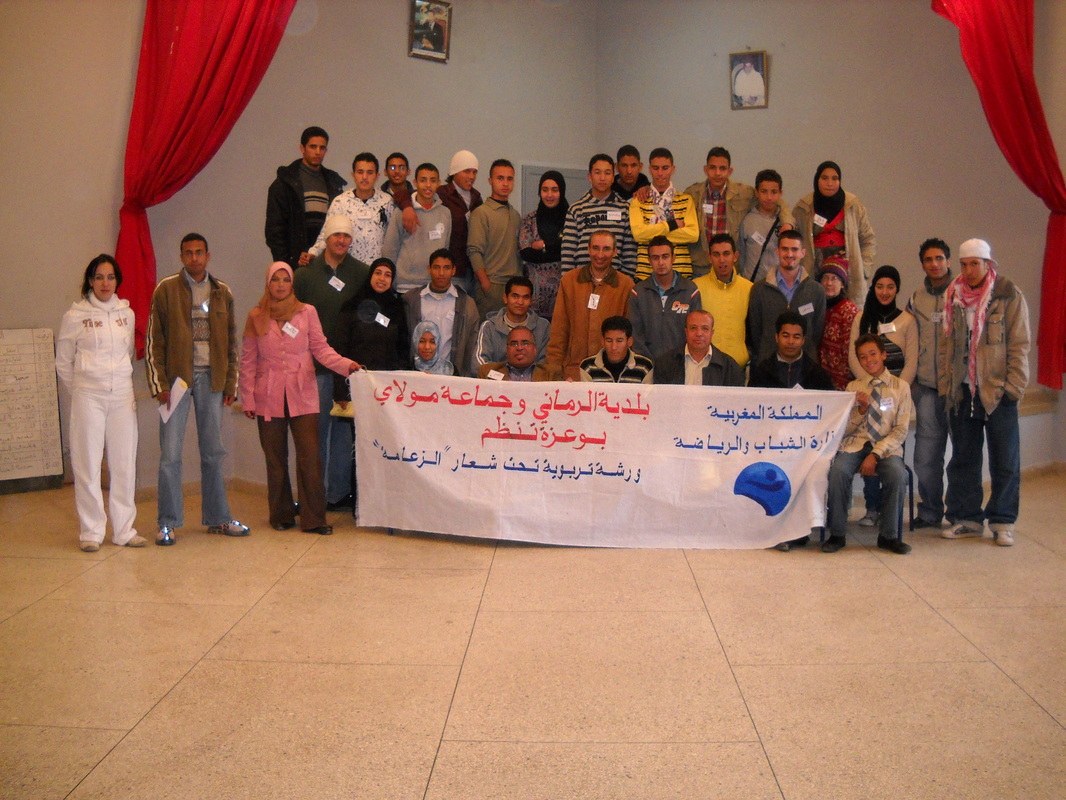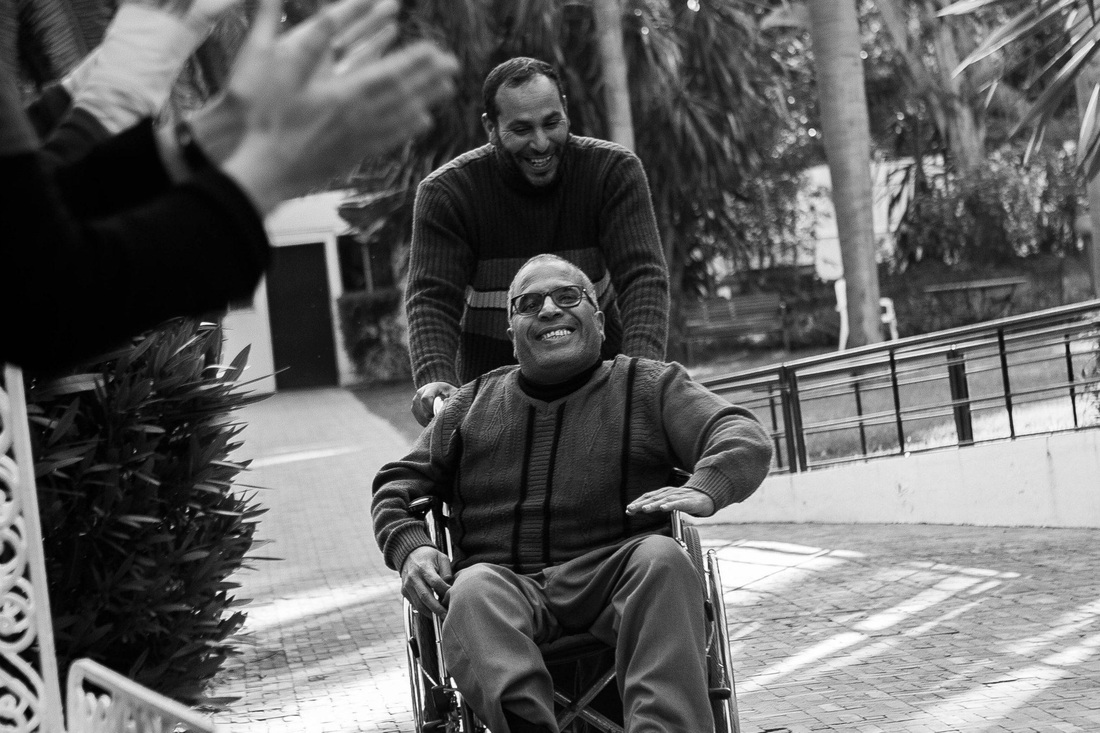 Hakim show casing the inaccessibility of many buildings Hakim show casing the inaccessibility of many buildings and fascinating, and such an important part of the amazing person he is, that we struggled with how to pare it down to only a few snippets of information. If this video intrigued you about Hakim’s life and work, we hope you will enjoy reading about everything that we couldn’t include in such a short clip. Hakim Illi was born in February, 1961, in Marrakech. His mother was a housewife and his father worked as a security guard in a factory. When Hakim was about 13 months old, he contracted polio. At the beginning his family worked very hard to find a cure; they were not yet ready to believe that they had a son with a disability. His mother became a huge advocate for her son, and she worked tirelessly taking him to doctors and learning about various medicines and treatments. When Hakim was 6 years old, his family finally learned and accepted that his polio would not be treatable, and they began looking for educational opportunities for him. Hakim’s family learned that there was an opening at the Cheshire Foundation in Marrakech, a school and rehabilitation center for children with special needs, and Hakim was enrolled there from age 6 to age 17. The Cheshire Foundation at the time was staffed by Peace Corps Volunteers, who worked in both the administrative and rehabilitative aspects of the operations. From the PCVs Hakim learned about the importance of independence. Until the age of 12 Hakim would stay at the center all week and only return home on weekends; as a teenager, he attended as a day student. After he finished his studies at the Cheshire Foundation at the age of 17, Hakim studied in a private school, and he also studied English at the American Language Center in Marrakech. Eventually, he returned to the Cheshire Foundation to teach part-time, and to tutor the PCVs who worked there. In the early 1980’s, a PCV from Cheshire recommended Hakim to Peace Corps as a language teacher for trainings (now known as an LCF). Hakim worked as a language teacher from 1981 to 1984, often working with more than one training cohort in a year. And when a full-time opportunity in the administrative department in Peace Corps Headquarters opened up, Hakim leapt at the opportunity. He has held various positions in the administration ever since.
rehabilitation center in Takkadoume, an under-resourced neighborhood in Rabat, providing physical therapy for those who cannot afford it (the cost of physical therapy can range from 80 - 150 dirhams per hour). The association is also heavily involved in advocacy to increase the rights of Moroccans with disabilities. As a result of the advocacy efforts of Hakim’s association, as well as many other associations, the government passed the Accessibility Law in 2003. Hakim has seen an increase in the number of ramps, and access to interpreter services for the hearing impaired, in the large cities of Rabat and Casablanca. However, there is still a long way to go to encourage the government to thoroughly enforce the law, and subsequent human rights bills have treated accessibility measures for people with disabilities as optional, or "circumstances permitting." This is not acceptable to Hakim and his association, and they are working hard to communicate that accessibility for ALL people is a mandatory right. In particular they are working hard to improve access at the polls during elections; as Hakim says, "We know that democracy starts at the ballot box."  Amidst decades of incredible work at Peace Corps and with his association, Hakim created a beautiful family. He married the love of his life in 1991, and he and his wife have three beautiful children currently aged 21, 16, and 14 – although Hakim says they are "still young in my eyes." Hakim has taught and inspired generations of Peace Corps Volunteers. Although the Special Education Sector is no longer in Morocco, the Supporting People with Special Needs Committee was founded by Youth Development PCVs who were motivated by a presentation that Hakim gave at a training. This committee provides trainings and resources to both PCVs and Moroccan associations, and works hard to improve Peace Corp’s work with the special needs community of Morocco. We consider ourselves so privileged to have had our work and our lives influenced by Hakim, and – as tricky as creating that video was! – we are beyond delighted at this opportunity to share the story of our hero with the world.
0 Comments
Leave a Reply. |

